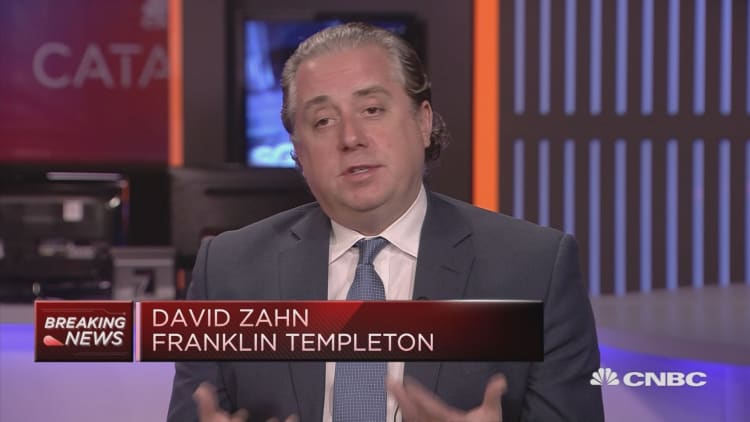Currency traders largely disregarded the Italian general election on Monday morning as they waited for further clarity on the future government in the face of a likely hung parliament.
The euro was little changed Monday morning, trading at $1.2208 against the dollar at around 7 a.m. London time (2 a.m. ET). Despite strong support for far-right, anti-establishment and euroskeptic parties in Italy, the currency seemed immune to the political uncertainty in the third-largest euro economy.
"The reaction in FX (fixed income) markets to the eurosceptic shift in Italy so far has been muted, as investors await more clarity on the composition of the next government," Danske Bank said in a note on Monday morning.
The parliamentary elections in Italy are likely to lead to a hung parliament, sparking weeks of negotiations between the political parties. According to preliminary results, the Five Star Movement is set to be the largest political force, but a right-wing coalition led by Silvio Berlusconi's Forza Italia is set to win the most seats.
"We don't know what's going to happen with this government and we are really waiting to see who will try to form a coalition," David Zahn, head of European Fixed Income at Franklin Templeton Fixed Income Group, told CNBC on Monday.
According to Zahn, the worst outcome for markets would be a coalition between the populist Five Star Movement and the far-right Lega, formerly known as the Northern League.

"They should have enough votes between them to actually form a coalition," he said, noting that this is "highly unlikely" as both parties have said previously they would not be joining forces. At the same time, it cannot be disregarded, as both would like to be in power, he added.
In credit and equity markets, however, the Italian election is set to have an impact at the start of the trading day.
"The Italian election is not a positive for the peripheral spreads this morning, but it is mainly an Italian 'problem,'" Danske Bank said in its note, citing factors like news in Germany over the weekend of a political agreement as positive for other credit markets in the region.
"Hence, we expect Italy to lose relative to Spain and Portugal as well as the core EU markets," the bank said, adding that the 10-year spread between Italian and German bonds should open up about five basis points wider on the back of the election result.
The German bunds are seen as the safest in the euro area and the wider their gap with other bonds gets, particularly Italian bonds, the more risk investors associate with the latter.
The spread between the Italian and German 10-year bonds grew 11 basis points at about 7:15 a.m. London time.
"Whatever the outcome, we think that political uncertainty and the likelihood of looser fiscal policy will push bond yields up," Capital Economics said in a note Monday morning. The macroeconomics research company expects the 10-year government bond yield to rise to 2.75 percent by the end of the year. But given the political instability, it said it could revise this forecast.
The was off by more than 1 percent at 21,658 at about 8:20 a.m. London time.





